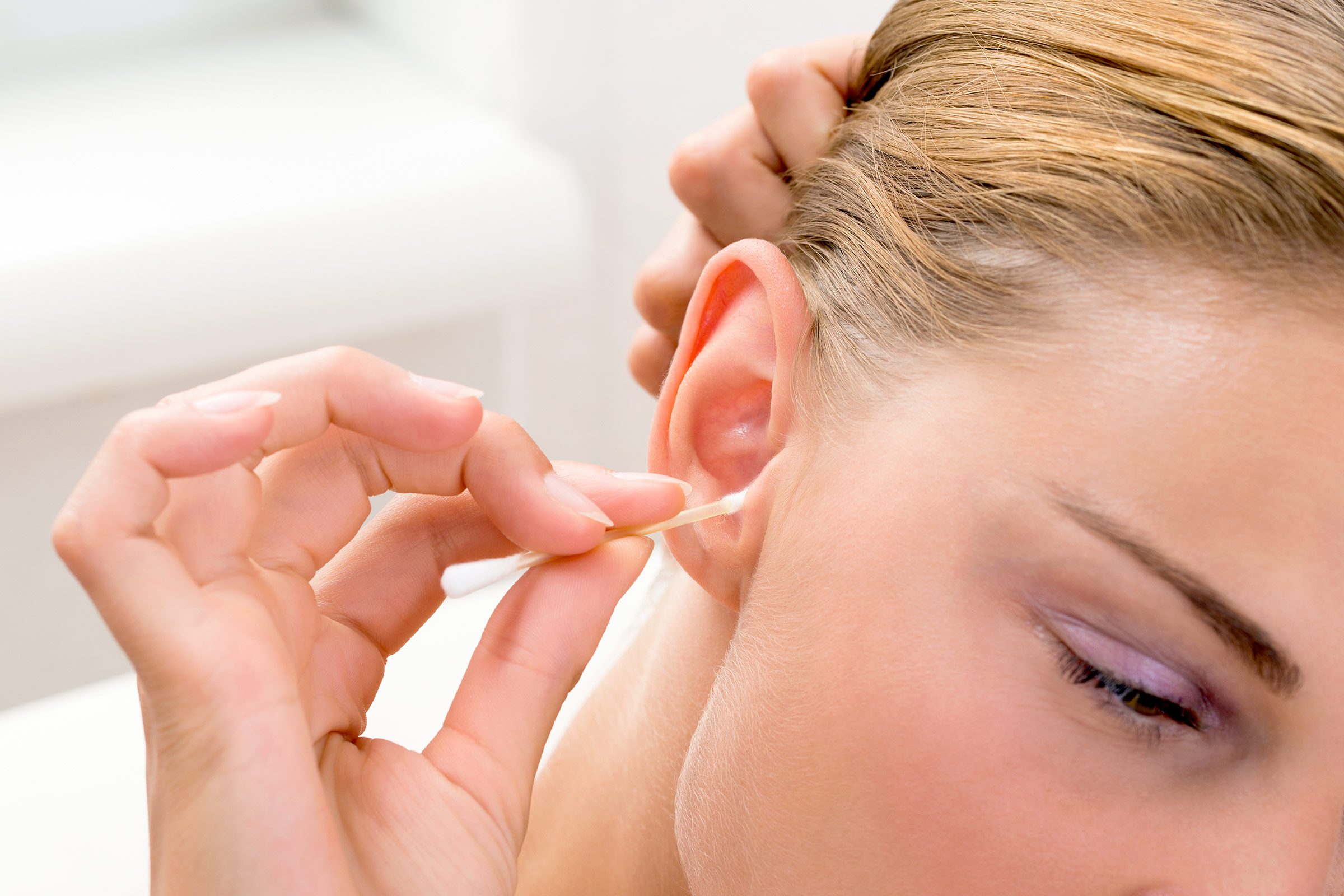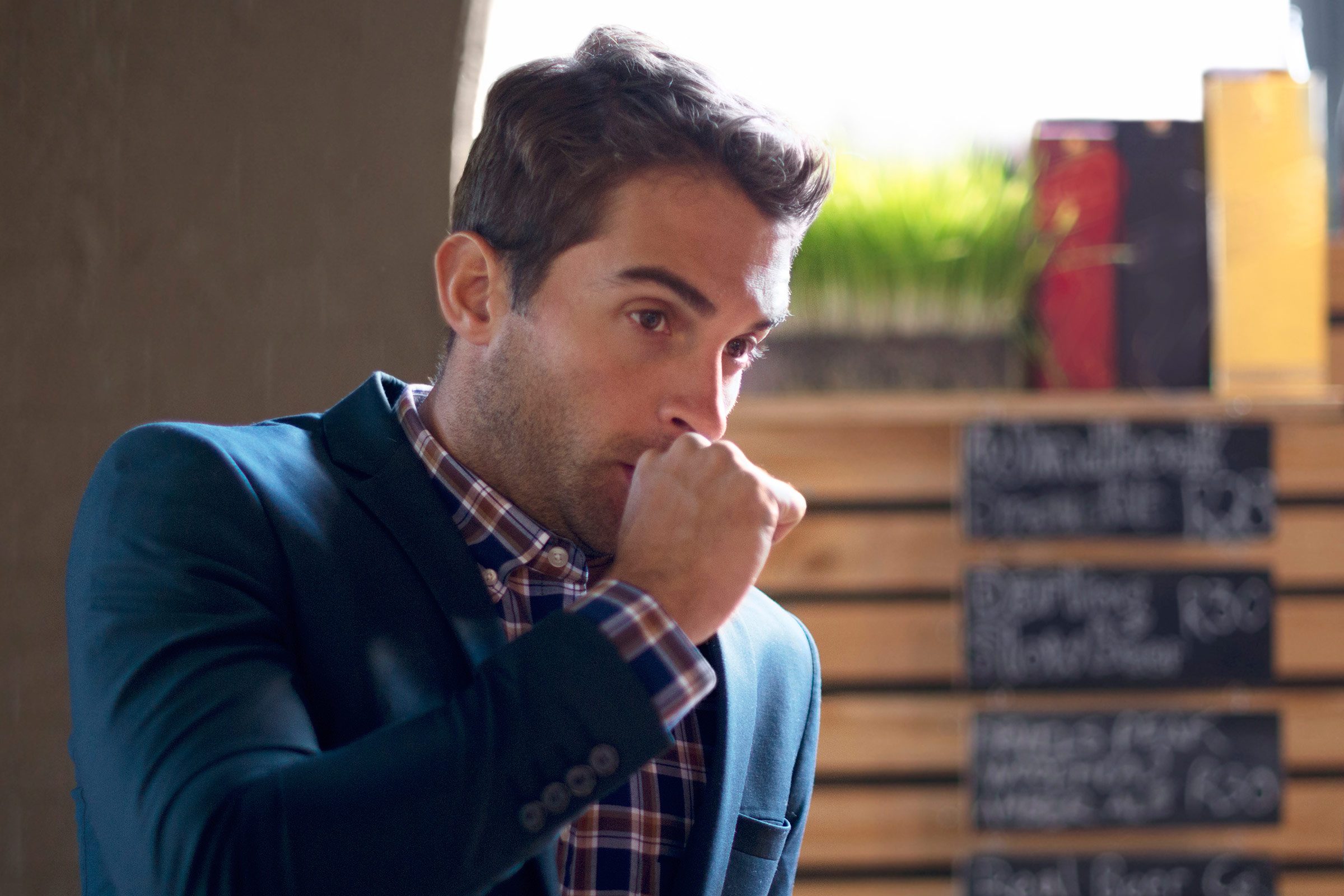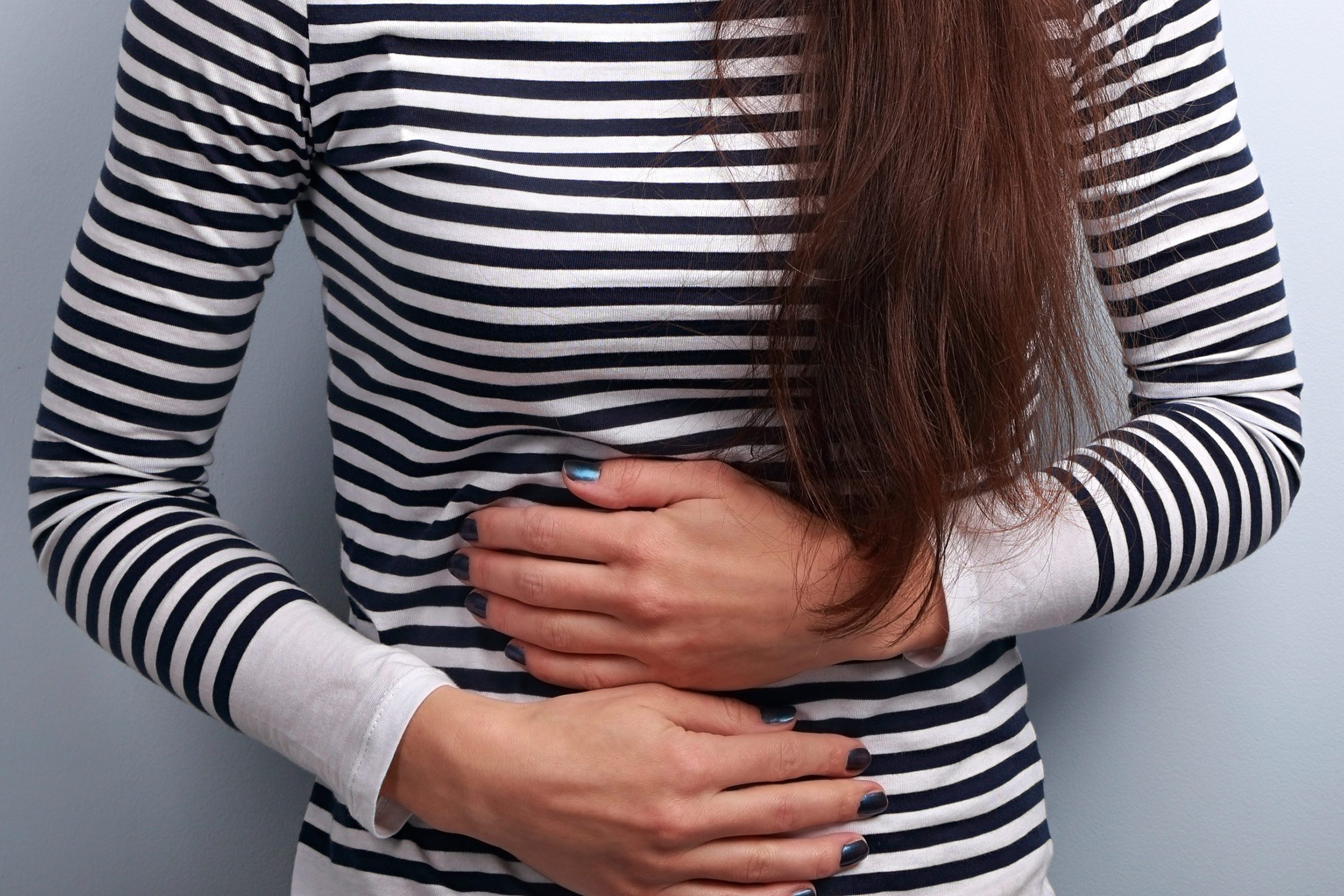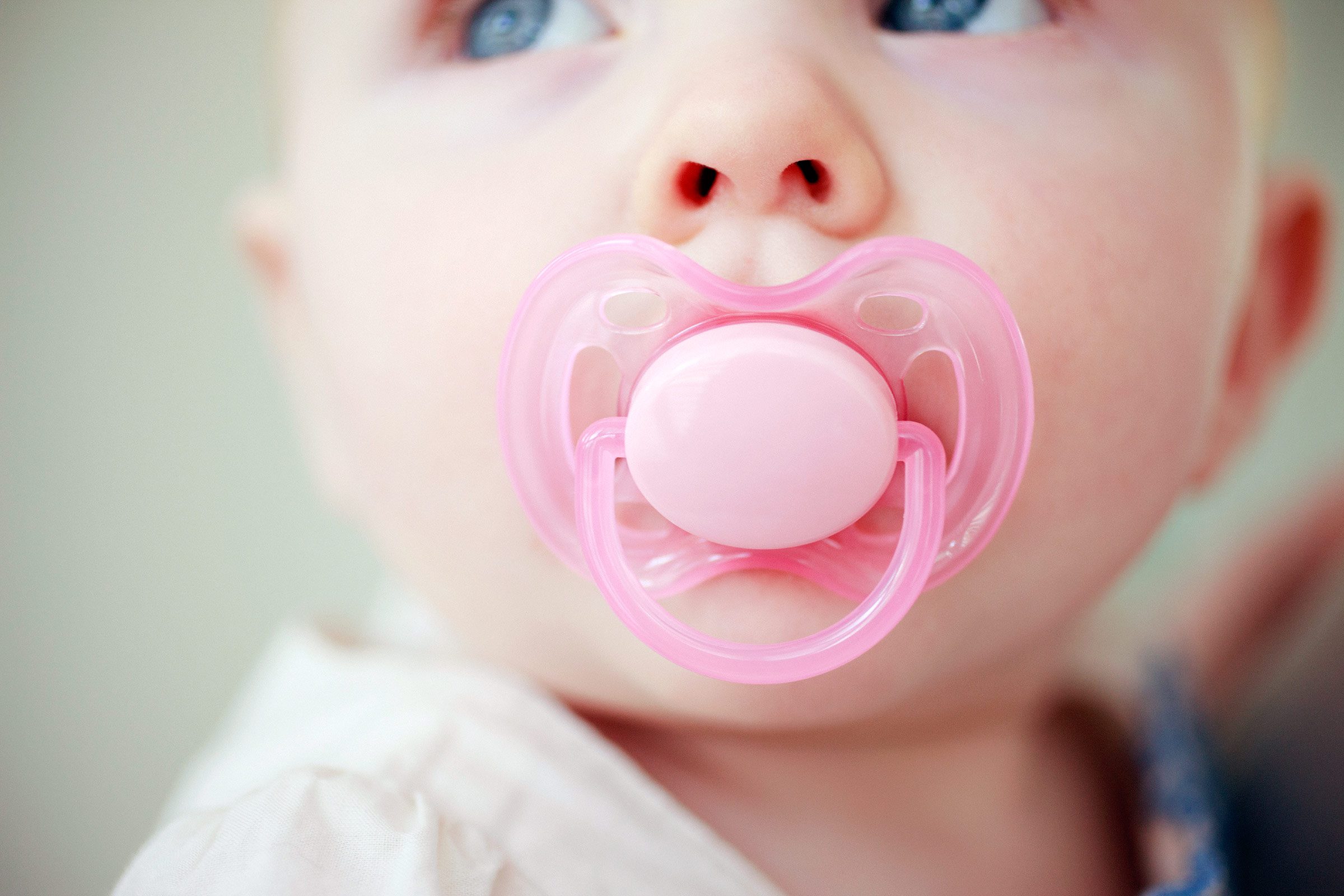
Cleaning earwax with a Q-tip: Not healthy.
ENT doctors will practically beg you to toss your cotton-tipped applicators: There’s no good reason to use them to clean your ears. First, earwax is healthy and necessary; it protects your ears and has antibacterial properties, and too little earwax can leave your ears dry and itchy, according to the American Academy of Otolaryngology.
What’s more, trying to remove it yourself usually backfires and pushes the earwax in deeper where it can wind up impacted and cause hearing loss. The AAO recommends washing your outer ears with a cloth, but says to never insert anything into the ear canal. For more tips on the right way to keep your ears clean, visit ent.org.
This Is How You Really Should Be Cleaning Your Ears—No Q-Tips Required

Burping: Healthy habit.
A loud, stinky belch after a huge meal isn’t exactly nice, but it is good for your stomach. When your stomach is packed with food, it feels heavy and bloated. A burp—which is essentially your body releasing air from the stomach up through the esophagus and out your mouth—relieves some of that pressure. “Burping after meals is totally normal,” says Sheth. “But if you’re belching throughout the day and its unrelated to when you eat, you may be swallowing too much air.” Sheth says this can be a sign of stress, or of chewing a lot of gum. If you’re concerned, see a doctor.

Passing gas? Healthy habit.
Literally like exhaust from your car, flatulence is a necessary and natural byproduct of reactions in your digestive tract as your gut bacteria process food. You can only “hold in” gasses like carbon dioxide and methane for so long before they need to come out eventually, says gastroenterologist Anish Sheth, MD, author of What’s Your Poo Telling You? Most people release gas about 14 times during the day and three to five times while they sleep. The colon is fairly dormant during the middle of the night, but it gets revved up and starts contracting when you wake up, sweeping out the gas that’s been there all night. “The highest volume and longest emission of the day is usually in the morning when the colon wakes up,” Sheth says.
Here’s How Often You Should Poop, Plus 8 Signs of Digestive Problems

Eating snot? The jury’s out.
It’s high on the ick factor, but a Canadian professor of biochemistry has wondered whether his young daughters’ habits of picking their nose and eating what comes out could be good for them, CBC News recently reported. Professor Scott Napper has yet to formally test his hypothesis, but posits that consuming your boogers can prime your immune system to detect germs. However, Vanderbilt University infectious disease specialist William Schaffner, MD, told ABC News that “it’s not likely that eating boogers would offer much additional immune system support, because people already unconsciously swallow nasal mucus.”

Eating in bed? Not healthy.
The crumbs and sticky sheets are the least of it. Munching in bed is bad for your digestion, says Sheth. That’s because when you’re in bed, you tend to hunch over, which puts pressure on your abdomen and can make you burpy. And if you eat between the sheets close to bedtime, it can bring on a bad bout of heartburn. Lying down within three or four hours of eating a big meal is a huge risk factor for reflux, Sheth adds.

Cleaning your baby’s pacifier with your own saliva? Healthy habit.
Binky popped out of your baby’s mouth—again—and there’s no tissue or soap and water in sight. Sucking on the paci yourself to clear off germs may actually protect your child from developing allergies, according to a recent study published in the journal Pediatrics. Researchers found that children whose parents sucked on their pacifiers to clean them had one-third the risk of developing eczema at 18 months, compared to those whose parents didn’t. Early exposure to Mommy’s saliva may help bolster a baby’s immune system, researchers suspect.